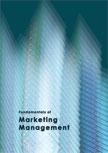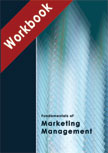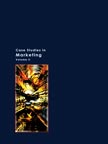Sony's Battery Recall Fiasco
|
|
ICMR HOME | Case Studies Collection
Case Details:
Case Code : MKTG162
Case Length : 11 Pages
Period : 2005-2006
Pub Date : 2007
Teaching Note :Not Available
Organization : Sony Corporation
Industry : Computer / Consumer Electronics
Countries : USA, Japan
To download Sony's Battery Recall Fiasco case study
(Case Code: MKTG162) click on the button below, and select the case from the list of available cases:

Price:
For delivery in electronic format: Rs. 200;
For delivery through courier (within India): Rs. 200 + Shipping & Handling Charges extra
» Marketing Case Studies
» Marketing Management Short Case Studies
» View Detailed Pricing Info
» How To Order This Case
» Business Case Studies
» Case Studies by Area
» Case Studies by Industry
» Case Studies by Company
Please note:
This case study was compiled from published sources, and is intended to be used as a basis for class discussion. It is not intended to illustrate either effective or ineffective handling of a management situation. Nor is it a primary information source.
Chat with us

Please leave your feedback

|
|




<< Previous
Excerpts
Background Note
|
Sony's history can be traced back to 1946 when Masaru Ibuka (Ibuka) and Akio
Morita (Morita) established Tokyo Tsushin Kogyo K.K. (Tokyo Telecommunications
Engineering Corporation), in Nihonbashi, Tokyo. The company was set up with the
objective of conducting research and production of telecommunications and
measuring equipment.
Over the years, Sony grew to become a leading manufacturer of electronics,
communications, video gaming, and information technology products for retail
consumers as well as institutional customers. Sony became widely recognized the
world over for its innovative and high quality products...
|

|
The 'Zippo' Batteries
In June 2006, it was reported that during a conference in a hotel in Osaka,
Japan, a Dell notebook burst into flames. In July 2006, two more incidents
of Dell's laptops catching fire were reported. On August 14, 2006, Dell and
the United States Consumer Product Safety Commission (U.S. CPSC) together
announced the recall of 4.1 million Sony lithium-ion batteries that were
used in Dell's notebooks. The US CPSC said this was the largest safety
recall in the history of the consumer electronics industry...
|
|
The Impact of the Recall
Analysts noted that even though Sony's battery operations accounted only
for three percent of Sony's total electronics sales and six percent of
the company's operating profits, the worldwide recall had clearly
affected Sony's brand image as a manufacturer of high quality consumer
electronic products. Roger Kay, an analyst with Endpoint Technologies
Associates Inc., commented, "I think it might be a good time for Sony to
sell the business to somebody else. If I was HP, I would buy Sanyo
batteries so I can say Sony-free because - even if you say they are
making perfectly good batteries now - all of that gets lost in the
noise. All the consumers know is Sony has a bad battery."... |
Future Outlook
Despite the negative perception among customers and the inconvenience caused,
most industry experts were of the view that the recall would not significantly
impact the buying decisions of consumers. Some felt that the honest approach
demonstrated by Sony and the notebook manufacturers might have actually helped
to boost consumer confidence in the brand...
Exhibits
Exhibit I: A Brief History of Sony's Lithium-Ion Battery Development
Exhibit II: Key Financials of Sony (In US$ Million)
Exhibit III: Notebook Manufacturers Affected by the Battery Recall (As of
October, 2006)
Exhibit IV: Market Share of Lithium-Ion Battery Manufacturers in 2005
|
|









